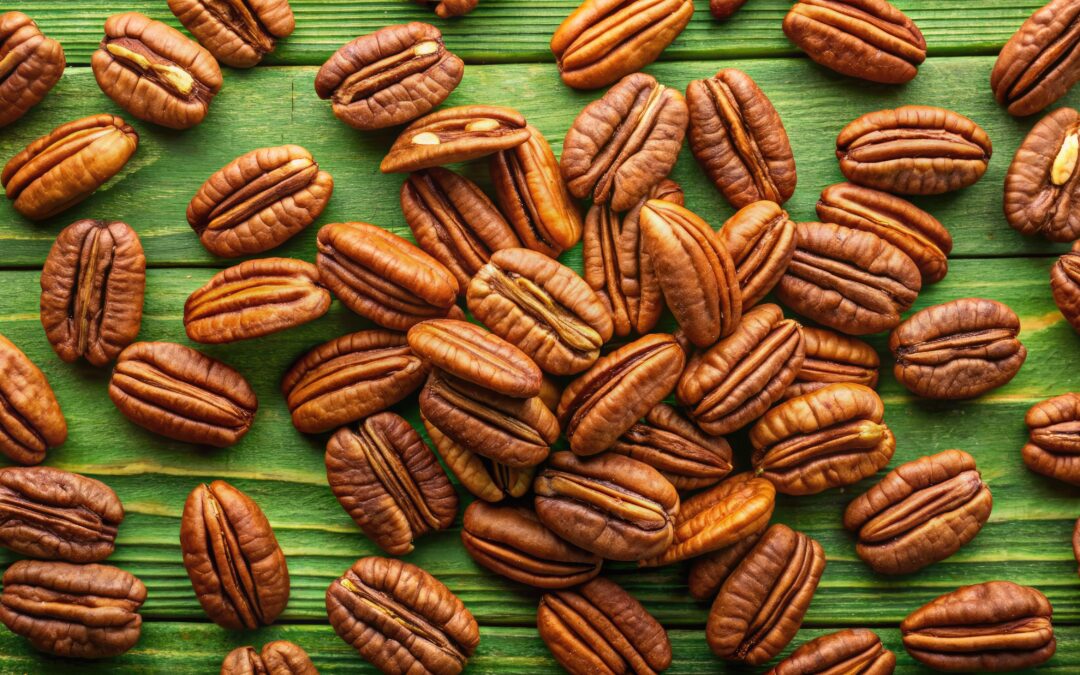Pecans, which grow on large trees native to the southern United States, are the only major tree nut indigenous to North America. For centuries, Indigenous communities recognized the value of pecans as a rich source of protein and essential nutrients. They also created “powcohicora,” an early form of pecan milk, by grinding the nuts and mixing them with water. Pecans were not only a dietary staple but also an important resource for trade, providing sustenance that could be easily stored and transported.
As European settlers arrived, they quickly adopted pecans into their diets, appreciating the nut’s sweet, buttery flavor. By the 18th century, pecans had gained popularity beyond Indigenous communities and began to spread throughout the colonies. With their versatility, pecans became a beloved ingredient in American kitchens, especially in the South, where they were used in both savory and sweet dishes. Pecan pie, a classic dessert, emerged as a favorite, celebrating the nut’s rich flavor and cultural heritage.
Today, the United States is the world’s largest producer of pecans, with states like Georgia, Texas, and New Mexico leading in production. The unique climate and soil of these regions create ideal conditions for pecan trees to thrive. Each year, millions of pounds of pecans are harvested and enjoyed not only in the U.S. but also around the world, where they are celebrated as a quintessential American nut. In fact, pecans are so beloved that they have been designated the official state nut of Texas!
Pecan trees are notable for their longevity and size, often growing over 100 feet tall and producing nuts for many decades. These impressive trees contribute to the ecological diversity of the southern U.S., providing habitat and food for wildlife. The pecan’s role in the ecosystem, combined with its historical and culinary significance, highlights the nut’s importance beyond the kitchen.
In addition to their delicious taste, pecans are packed with health benefits, offering heart-healthy fats, antioxidants, and essential minerals like magnesium and zinc. This makes pecans not only a tasty addition to various dishes but also a nutritious one. From salads and granola to baked goods and holiday treats, pecans add a touch of richness to countless recipes.
Whether enjoyed in a slice of pecan pie, sprinkled on a salad, or as a snack, pecans are a symbol of North American heritage. Their journey from Indigenous food source to culinary icon speaks to their adaptability and timeless appeal, making them a truly remarkable part of America’s natural and cultural landscape.


